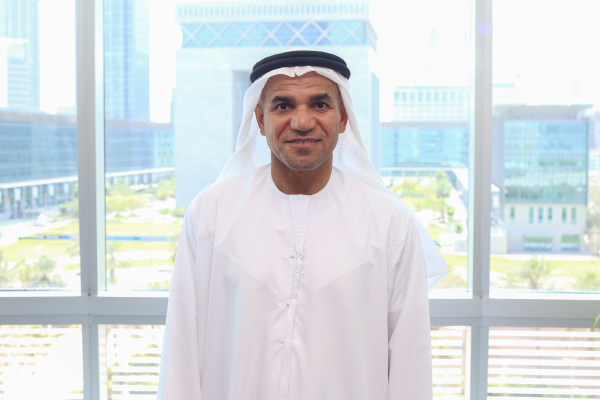With a mandate to create smart services, regional governments have their work cut out for them. CNME sat down with H.E. Dr. Saeed AL Dhaheri, Former Director General of Emirates Identity Authority and formal advisor to H.H. The Minister of Foreign Affairs, to discuss the future of smart government services.

What is driving the adoption of smart government services in the region?
We in the UAE are lucky to have a visionary leadership that is dedicated to looking forward and adopting new technologies. People want to use services whenever and wherever they are. Our leadership recognises these demands and is striving to provide customised services to the public. Not only that, but regional governments see the opportunity to stand out as global leaders in terms of technology enabled services. This, along with a young, tech-savvy population is enabling the adoption of these services. We also see a focus on the journey of the customer and have the drive to provide an experience that is satisfying. We see this as an opportunity to serve the country.
How can governments meet the increasing demands of this tech-savvy population?
The government cannot do everything by itself. There are a number of factors that will slow smart service roll-outs if the government is left to take them on alone – cost can be a barrier, as well as a lack of specific IT skills within the agencies. Governments need to collaborate with private entities to realise their technology goals. This should begin with outsourcing managed services.
How will outsourcing managed services support the implementation of smart government services?
Outsourcing managed services can benefit governments in a number of ways. First, it allows a team of professionals to take care of the implementation and issues. Often, government agencies simply do not have the employees to support their goals. Second, outsourcing such projects can translate into major cost savings for governments. Finally, outsourcing these types of projects and services allows agencies to concentrate on their core business and functions.
What are some barriers that might slow the adoption of smart government services in the region?
I think that there needs to be awareness of what services are available and how to use them. A service may be available, but if it is not used, or if it used improperly, it loses its value. If the application isn’t familiar, or if people aren’t comfortable using the service in a new way, they are less likely to use it. Nearly 60 percent of apps in the Apple Store have not been downloaded. This just goes to show that we can make the service, but that does not mean that people will be comfortable using it. Also, users are concerned with privacy and security – there needs to be some amount of assurance from service providers.
How do you see citizens interacting with government agencies differently as we adopt smart services?
Citizens are already using smart services in the UAE. For example, before, when someone needed a certificate from the government, they would have to go to the office, wait in a line, fill out paperwork and even take fingerprints. Then they would have to wait for the certificate to be mailed to them. Now they can request the form online, and the agency will email a PDF. It is much easier for people to get services from the government now. Now, and in the future, I can see smart services enabling citizen engagement. We are relying more and more on social media to communicate and engage with our communities. I think that all governments are going in this direction.
Where does this move to smart government services leave populations that are unwilling to adopt such technology?
We cannot get rid of face to face interactions, and I don’t think that we should try to. We will always have citizens that want to interact with government agencies using traditional methods, either because of age or inability to adopt such technology. For some, they just need to be educated about the services and how to use them, but still we need to maintain traditional methods of engagement.
What do you think the future of digital governments will look like?
To put it short, I think we are going forward. There are solid plans for modernising government services delivery. When it comes to using technology to provide services the key is to make sure that they are easy to use and satisfying to customers. The goal is to make people happy. The GCC is also moving toward modernisation with government service provisioning to lead this transformation. You can see this shift even in our government summits which have become a platform for the government to discuss how it can improve operations.





